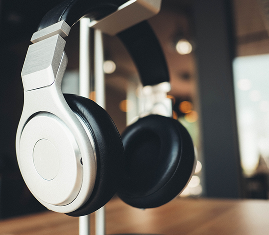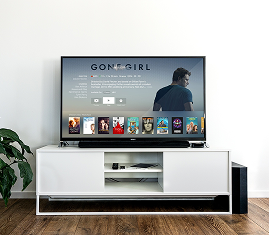Imagine sitting in your favorite chair, surrounded by your high-quality audio equipment. As you close your eyes and press play on your carefully curated playlist, you can’t help but wonder why certain songs elicit a stronger emotional response than others. This curiosity is shared by many audiophiles who seek to understand the connection between music psychology and their own preferences. This article explores the intriguing relationship between the science of music and the choices made by those who obsess over every note, beat, and nuance.
Understanding Music Psychology
Definition of Music Psychology
Music psychology is the scientific study of how music affects our thoughts, behaviors, and emotions. It focuses on understanding the cognitive processes behind musical perception, listening, and appreciation. By examining the psychological principles that govern our relationship with music, researchers aim to shed light on why certain musical qualities resonate with individuals, including audiophiles.
Key Principles of Music Psychology
Several key principles form the foundation of music psychology. These principles help us understand why music has such a profound impact on our emotions, thoughts, and actions. One principle is that music has universality; it transcends cultural and linguistic boundaries, allowing people from diverse backgrounds to connect through shared emotional responses. Another principle is that music evokes specific emotional and behavioral responses due to its ability to stimulate the auditory system and activate brain regions associated with emotion and reward. Additionally, music offers a means for self-expression, social bonding, and mood regulation, making it a powerful medium with various psychological functions.
Music Psychology and Cognitive Processes
Cognitive processes play a crucial role in our perception and understanding of music. Music engages complex cognitive functions such as attention, memory, and perception. For example, our ability to recognize melodies, differentiate between harmonies, and anticipate musical structures relies on cognitive processes. Moreover, music can enhance cognitive abilities in other domains, such as language development and spatial-temporal reasoning. By studying the interplay between music and cognitive processes, music psychologists gain valuable insights into how music influences our thoughts and behaviors.
The Audiophile Community
Who are Audiophiles
Audiophiles are individuals who have a deep passion for high-quality sound reproduction. They are dedicated to achieving the most authentic and pristine listening experience possible. Audiophiles often invest significant time, effort, and resources into building high-end audio systems, carefully selecting speakers, amplifiers, and headphones to ensure optimal sound quality. They value the subtleties and nuances of sound, striving for accurate reproduction that captures the intricacies of the artist’s performance.
Characteristics of Audiophiles
Audiophiles share certain characteristics that distinguish them from casual music listeners. They have a well-developed and discerning ear, allowing them to detect subtle changes in sound quality and audio reproduction. Audiophiles prioritize the fidelity and accuracy of sound, seeking systems that faithfully reproduce the original recording. They may possess technical knowledge about audio equipment, such as understanding specifications and audio formats. Audiophiles also tend to have a deep appreciation for various genres of music and actively seek out new musical experiences.
Audiophile’s Relationship with Music
For audiophiles, music is more than just entertainment; it is a transformative and immersive experience. They view music as an art form capable of eliciting intense emotions, evoking memories, and inspiring personal growth. Audiophiles seek to create an intimate connection with the music, aiming to capture the artist’s intentions and convey the emotional content with utmost clarity. They derive joy and fulfillment from engaging with music on a deep level, constantly exploring new genres, artists, and recordings to enrich their musical journey.
Subjectivity in Audiophile Preferences
The Role of Individual Preferences
Audiophile preferences are highly subjective, influenced by individual factors such as personal taste, upbringing, and prior musical experiences. Each audiophile has unique sonic preferences and a particular aesthetic for sound reproduction. Some may prioritize warmth and richness, while others may prefer analytical and detailed presentations. Individual preferences also extend to preferred genres, artists, and musical styles, reflecting personal inclinations and emotional connections. Understanding the role of individual preferences in audiophile culture is essential for appreciating the diversity and breadth of sonic experiences within the community.
Cultural Influences on Audiophile Preferences
Cultural factors significantly shape audiophile preferences. Cultural heritage, societal norms, and musical traditions contribute to the formation of musical tastes. Different regions and communities may have distinct preferences for specific genres, styles, or sound signatures. For example, audiophiles from Eastern cultures may have a deep appreciation for classical music, while those from Western cultures may lean towards popular music genres. Understanding the cultural nuances influencing audiophile preferences helps identify patterns and variations in musical taste across diverse communities.
How Personal Experiences Shape Audiophile’s Taste
Personal experiences play a vital role in shaping an audiophile’s taste and preferences. Experiences such as attending live concerts, musical education, or encounters with influential musicians can profoundly impact an individual’s musical inclinations. Positive emotional associations with certain songs or albums can create lasting preferences that transcend objective sound quality. Additionally, life events and significant moments intertwined with specific music can forge strong emotional bonds and preferences. These personal experiences contribute to the richness and diversity of audiophile taste, as each individual’s journey with music is unique.
The Science of Sound Quality
The Definition of Sound Quality
Sound quality refers to the perceived excellence or fidelity of audio reproduction. It encompasses various aspects, including timbre, dynamics, clarity, and spatial representation. Sound quality is subjective, as it depends on individual preferences, expectations, and listening environments. Audiophiles, with their keen ears and deep knowledge of audio equipment, strive to achieve the highest possible sound quality in their listening setups. They seek systems that faithfully capture the nuances and subtleties of the original recording, aiming for a lifelike and immersive listening experience.
How Sound Quality is Measured
Measuring sound quality involves objective and subjective assessments. Objective measurements focus on quantifiable aspects such as frequency response, distortion, and signal-to-noise ratio. Advanced testing equipment and methodologies help quantify these technical parameters. However, sound quality cannot be fully captured by objective measurements alone. Subjective assessments, which consider human perception and preferences, are equally important. Audiophile communities often rely on blind listening tests, where trained listeners evaluate and compare different audio systems or formats, providing insights into the perceived sound quality.
The Impact of Sound Quality on Audiophile Preferences
Sound quality profoundly influences audiophile preferences. Audiophiles prioritize accurate and faithful reproduction, seeking systems that excel in sound quality to maximize their listening experience. Sound quality directly affects the emotional and sensory impact of music on the listener. A high-quality audio system can enhance the dynamic range, clarity, and spatial representation of music, immersing the listener in a captivating sonic experience. Conversely, compromised sound quality, such as distortion or poor frequency response, can detract from the enjoyment and emotional connection with the music.
Music Psychology Theories related to Audiophile Preferences
Cognitive Dissonance Theory
Cognitive Dissonance Theory, proposed by Leon Festinger, suggests that individuals experience discomfort when their beliefs or preferences are inconsistent with their actions or environment. In the context of audiophile preferences, cognitive dissonance may occur when an audiophile encounters an audio system or musical piece that challenges their established preferences. This dissonance motivates audiophiles to resolve the discrepancy either by rejecting the new experience or adjusting their preferences to accommodate new information. Understanding cognitive dissonance helps explain the resistance or openness audiophiles may exhibit towards unfamiliar or alternative music and equipment.
Mood Regulation Theory
Mood Regulation Theory posits that people use music to manage and regulate their emotions. Music has the power to enhance positive emotions, alleviate negative emotions, and even induce desired emotional states. In the audiophile context, the choice of music and audio systems may be influenced by the desire to modulate or enhance specific emotional experiences. For example, audiophiles may choose soothing and relaxing music to unwind after a stressful day, or upbeat and energetic music to boost their mood. By exploring the implications of Mood Regulation Theory, researchers can uncover how audiophiles utilize music as a tool for emotional self-regulation.
Emotional Consonance and Dissonance Theory
Emotional Consonance and Dissonance Theory suggests that the emotional response to music depends on the congruence between the music and the listener’s emotional state. Emotional consonance occurs when the emotional content of the music aligns with the listener’s emotional state, leading to a harmonious and positive emotional response. In contrast, emotional dissonance occurs when the emotional content of the music conflicts with the listener’s emotional state, resulting in a discordant and possibly negative emotional response. This theory helps explain why certain audiophiles gravitate towards specific music genres or tracks that resonate with their emotional state, enhancing their overall listening experience.
Role of Emotion in Music and Audiophile Preferences
How Music Triggers Emotion
Music possesses a unique ability to evoke intense emotions. The interplay of elements such as melody, rhythm, harmony, and instrumentation influences the emotional impact of music. Certain musical features, such as sudden changes in dynamics, dissonant harmonies, or lyrical content, can trigger visceral emotional responses. The brain processes these musical elements in regions associated with emotion and reward, activating neurotransmitters that elicit pleasure, arousal, or sadness. By understanding the mechanisms through which music triggers emotions, music psychologists gain insights into how audiophiles form emotional connections with specific genres, artists, or musical pieces.
Emotional Responses and Preference Formation
Emotional responses to music significantly impact preference formation. When music elicits positive emotions, individuals are more likely to develop a preference for that particular music or genre. The emotional resonance created by music contributes to the formation of strong emotional bonds and attachments, shaping an audiophile’s preferences. For example, an audiophile may associate a certain song with a joyful memory, leading to a lasting sentimental preference for that song. Understanding the link between emotions and preference formation helps explain why certain genres or songs hold deep significance for audiophiles and form the foundation of their musical preferences.
Audiophiles and Emotional Connection to Music
Audiophiles often emphasize the emotional connection they feel with music. The pursuit of high-quality sound reproduction is driven partly by the desire to enhance emotional engagement with the music. Audiophiles seek systems that can faithfully recreate the emotions conveyed by the artist, allowing them to experience music at a profound level. The emotional connection to music is a driving force behind audiophile preferences, as they strive to capture the subtleties and nuances that evoke intense emotional responses. By acknowledging the role of emotion in audiophile culture, we can better comprehend the depth of their passion and dedication to the pursuit of sonic excellence.
Musical Elements and Audiophile Preferences
Influence of Rhythm and Tempo
Rhythm and tempo have a significant impact on audiophile preferences. Different rhythms and tempos can evoke distinct emotional responses and alter the perceived energy or mood of music. Audiophiles may have specific preferences for certain rhythmic patterns or tempos that align with their desired emotional experiences. For example, a fast-paced and energetic rhythm might appeal to an audiophile seeking an invigorating and dynamic listening experience. Conversely, a slow and steady tempo could attract those desiring a more contemplative and relaxed ambiance. The interplay between rhythm, tempo, and emotion contributes to the intricate tapestry of audiophile preferences.
Importance of Melody and Harmony
Melody and harmony play a vital role in shaping audiophile preferences. Melodies are the memorable and distinctive sequences of notes that form the core of a musical piece. Audiophiles may gravitate towards complex and intricate melodies that exhibit technical prowess or opt for simplistic, yet emotionally powerful melodies. Harmony, the combination of various musical notes played simultaneously, contributes to the richness and texture of music. Audiophiles often appreciate harmonically rich compositions that exhibit harmonic complexity or unique chord progressions. The interweaving of melody and harmony influences the emotional resonance and aesthetic appeal of music for audiophiles.
Effects of Lyrics and Themes
Lyrics and themes also influence audiophile preferences. Lyrics, with their ability to communicate stories, emotions, and messages, can deeply resonate with listeners. Audiophiles may connect with the lyrical content of a song, finding solace, inspiration, or personal relevance in the words. Similarly, thematic elements, such as the exploration of love, loss, or social issues, can captivate and engage audiophiles. The interaction between lyrics, themes, and music enhances the emotional and intellectual appeal of a song, contributing to an audiophile’s preference for specific tracks or genres.
Music Genres and Audiophile Preferences
Different Genres, Different Appeals
Different music genres have distinct appeals for audiophiles. Each genre offers unique musical elements, emotional expressions, and cultural contexts that resonate differently with individuals. Classical music, with its orchestral arrangements and emphasis on technical precision, may captivate audiophiles seeking rich depth and complexity. Jazz, known for its improvisational nature and intricate harmonies, may attract those with an appreciation for musical nuances and spontaneity. Rock, pop, electronic, and other genres each offer their own sonic landscapes that elicit varied responses. Audiophiles may exhibit genre-specific preferences based on the emotional, aesthetic, or technical aspects of the music.
Typical Genre Preferences among Audiophiles
While audiophile preferences span a broad spectrum of genres, certain patterns emerge within the audiophile community. Classical music tends to have a dedicated following among audiophiles due to its intricate arrangements, dynamic range, and transparent recording techniques. Jazz, with its emphasis on live performance and improvisation, also appeals to audiophiles seeking an engaging and dynamic listening experience. Additionally, audiophiles may develop preferences for specific sub-genres within rock, pop, electronic, or other genres based on sonic attributes or emotional resonance. While genre preferences are subjective and vary among individuals, these typical genre preferences offer insights into the diverse musical landscape within the audiophile community.
How Genres Relate to Sound Quality
Genres and sound quality are closely intertwined in the world of audiophile preferences. Different genres demand distinct sonic characteristics to capture their essence accurately. For example, classical music benefits from audio systems with wide dynamic range capabilities to reproduce the full spectrum of orchestral dynamics. In contrast, genres like electronic music may prioritize deep and impactful bass response or precise soundstage imaging. Audiophiles take these genre-specific requirements into account when selecting audio equipment, ensuring their systems faithfully reproduce the sonic qualities essential to the genres they enjoy. The relationship between genres and sound quality showcases the adaptability and customization of audiophile preferences.
The Influence of Tech and Equipment on Audiophile Preferences
High-end Audio Equipment and its Significance
High-end audio equipment is central to the world of audiophile preferences. Audiophiles meticulously select components like speakers, amplifiers, DACs (Digital-to-Analog Converters), and cables to create the optimal listening experience. High-quality audio equipment is designed to minimize distortion, enhance clarity, and faithfully reproduce the nuances of the original recording. The pursuit of sonic excellence drives audiophiles to invest in these meticulously crafted systems, recognizing the importance of each component in achieving their desired sound quality. High-end audio equipment serves as a gateway for audiophiles to immerse themselves in the music, heightening their appreciation and emotional connection.
How Tech Advancements Influence Music Perception
Technological advancements significantly impact audiophile preferences and the perception of music. Innovations such as digital audio formats, streaming services, and Hi-Res audio have provided new avenues for music consumption and access to high-quality recordings. These technological advancements have expanded the possibilities for audio enthusiasts, offering convenience, portability, and enhanced sound quality. Additionally, advancements in audio signal processing, room correction, and digital-to-analog conversion techniques have improved the accuracy and fidelity of audio reproduction. These advancements continually shape and redefine audiophile preferences as new technologies emerge, introducing novel possibilities for exploring music.
Effects of Analog and Digital Formats on Audiophile Choices
The choice between analog and digital formats is a significant consideration for many audiophiles. Analog formats, such as vinyl records, are prized for their warm, rich sound and nostalgic appeal. Audiophiles may gravitate towards vinyl for its unique sonic characteristics and the tactile nature of the medium. Conversely, digital formats, like CDs or streaming services, offer convenience, portability, and access to vast music libraries. Digital audio can provide high-resolution recordings that faithfully capture the nuances of the original studio masters. The preference for analog or digital formats varies among audiophiles, reflecting personal tastes, aesthetic preferences, and the desire for convenience or technical accuracy.
Future Trends in Music and Audiophile Preferences
Potential Shifts in the Audio Industry
The audio industry is constantly evolving, and future trends may shape audiophile preferences and the way we experience music. Advancements in audio technology, such as wireless audio transmission, virtual reality, and spatial audio, have the potential to revolutionize the way we interact with music. The rise of streaming services and the increasing accessibility of high-quality recordings may influence the way audiophiles consume and discover music. Furthermore, eco-consciousness and sustainability may become more prevalent, leading to innovative and environmentally-friendly audio equipment manufacturing processes. Understanding these potential shifts in the audio industry allows audiophiles to adapt and explore new avenues for their passion.
Impact of Technology Trends on Audiophile Preferences
Technology trends play a pivotal role in shaping audiophile preferences. As new audio technologies emerge, audiophiles have the opportunity to explore novel possibilities for sound reproduction and discovery. Technological advancements drive innovation in audio equipment, offering improved fidelity, versatility, and personalization. Additionally, the integration of artificial intelligence and machine learning in audio signal processing may open doors to further advancements in sound quality and customization. Audiophile preferences will continue to be influenced by these technology trends, as enthusiasts embrace new frontiers and adapt their setups to incorporate the latest advancements.
The Role of Music Psychology in Future Music Developments and Trends
Music psychology will continue to play a crucial role in future music developments and trends. By understanding the cognitive, emotional, and perceptual processes behind music perception, researchers can provide valuable insights into how music influences our preferences and enjoyment. Music psychologists help bridge the gap between scientific understanding and artistic expression, contributing to the development of new audio technologies, music production techniques, and personalized listening experiences. As the field progresses, collaborations between music psychologists, audio engineers, and musicians may lead to innovative breakthroughs that cater to the ever-evolving preferences and needs of the audiophile community and music enthusiasts as a whole.
In conclusion, the connection between music psychology and audiophile preferences reveals the intricate interplay between cognitive processes, emotions, and sound quality. Understanding audiophiles and the factors that shape their preferences is vital for appreciating the diversity within the audiophile community. As technology advances and music continues to evolve, music psychology will remain a crucial discipline in shaping the future of audio experiences and helping audiophiles uncover the deepest emotional and sensory dimensions of music.










